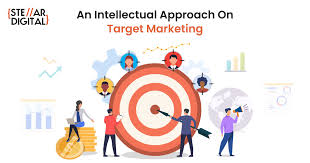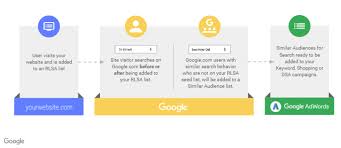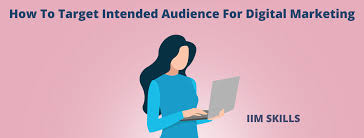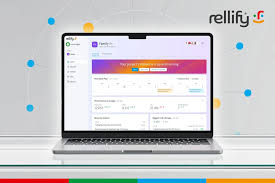Enhancing Online Presence with an Expert SEO Content Creation Agency
The Importance of SEO Content Creation Agency
SEO content creation is a crucial aspect of digital marketing strategy for businesses looking to improve their online presence and visibility. An SEO content creation agency plays a vital role in helping businesses create high-quality, relevant, and engaging content that not only attracts visitors but also ranks well on search engine results pages.
One of the key benefits of working with an SEO content creation agency is their expertise in understanding search engine algorithms and user behaviour. They have the knowledge and tools to conduct keyword research, analyse trends, and create content that resonates with the target audience.
By incorporating relevant keywords strategically into the content, an SEO content creation agency can help businesses improve their organic search rankings and drive more traffic to their website. This increased visibility can lead to higher conversion rates and ultimately boost revenue.
Moreover, an SEO content creation agency can help businesses stay ahead of the competition by regularly updating and optimising their content based on changing algorithms and trends. They can also provide valuable insights into performance metrics, allowing businesses to track the effectiveness of their content marketing efforts.
In conclusion, partnering with an SEO content creation agency is essential for businesses looking to enhance their online presence, attract more visitors, and drive conversions. With their expertise and resources, businesses can create compelling content that not only engages users but also ranks well on search engines, ultimately leading to business growth and success.
Maximising Online Presence: The Benefits of Partnering with an SEO Content Creation Agency
- Expertise in understanding search engine algorithms
- Ability to conduct keyword research effectively
- Creation of high-quality, relevant content
- Improved organic search rankings
- Increased website traffic and visibility
- Regular optimization based on changing trends and algorithms
Challenges of Engaging an SEO Content Creation Agency for Small Businesses
- Costly investment for small businesses with limited marketing budgets
- May take time to see significant results in terms of improved search engine rankings
- Quality of content may vary depending on the expertise and experience of the agency
- Limited control over content creation process and timelines when outsourcing to an agency
- Potential risk of relying too heavily on SEO strategies, neglecting other important aspects of digital marketing
Expertise in understanding search engine algorithms
Having expertise in understanding search engine algorithms is a significant advantage of working with an SEO content creation agency. This specialised knowledge allows the agency to conduct thorough keyword research, analyse trends, and create content that is optimised for search engines. By staying updated on algorithm changes and best practices, the agency can ensure that the content they produce ranks well on search engine results pages, driving organic traffic to their clients’ websites. This expertise enables businesses to effectively reach their target audience and improve their online visibility, ultimately leading to increased website traffic and potential conversions.
Ability to conduct keyword research effectively
The ability of an SEO content creation agency to conduct keyword research effectively is a significant advantage for businesses aiming to enhance their online visibility. By identifying and targeting the right keywords, these agencies can create content that aligns with what users are searching for, ultimately improving search engine rankings and attracting relevant traffic to the website. Through thorough keyword research, an SEO content creation agency can uncover valuable insights into user intent and behaviour, enabling them to tailor content that not only drives organic traffic but also increases the likelihood of conversions.
Creation of high-quality, relevant content
One significant advantage of partnering with an SEO content creation agency is their ability to produce high-quality, relevant content. These agencies have the expertise to craft engaging and informative content that resonates with the target audience. By focusing on creating content that is not only well-written but also tailored to meet the needs and interests of users, businesses can attract more visitors to their website and establish themselves as authoritative voices in their industry. High-quality content not only improves search engine rankings but also enhances brand credibility and fosters long-term relationships with customers.
Improved organic search rankings
One significant advantage of partnering with an SEO content creation agency is the enhancement of organic search rankings. By leveraging their expertise in keyword research and content optimisation, businesses can see a notable improvement in their visibility on search engine results pages. This increased ranking not only drives more traffic to the website but also boosts credibility and trust among users, ultimately leading to higher conversion rates and sustained online growth.
Increased website traffic and visibility
An SEO content creation agency offers the valuable benefit of increasing website traffic and visibility. By implementing strategic SEO techniques and creating high-quality, keyword-optimised content, businesses can attract more visitors to their website. This increased traffic not only enhances brand awareness but also improves the website’s visibility on search engine results pages, ultimately leading to a higher likelihood of attracting potential customers and driving conversions.
Regular optimization based on changing trends and algorithms
An invaluable benefit of partnering with an SEO content creation agency is their ability to provide regular optimization based on evolving trends and algorithms. By staying abreast of the latest changes in search engine algorithms and content trends, these agencies ensure that your content remains relevant and competitive in the digital landscape. This proactive approach not only helps maintain or improve your search engine rankings but also enhances the overall effectiveness of your content marketing strategy, driving increased visibility and engagement with your target audience.
Costly investment for small businesses with limited marketing budgets
For small businesses with limited marketing budgets, one significant drawback of hiring an SEO content creation agency is the potentially high cost involved. These agencies often charge fees for their services, which may not be feasible for businesses operating on a tight budget. The investment required to engage an SEO content creation agency can strain financial resources, making it challenging for small businesses to allocate funds towards other essential aspects of their operations. As a result, the cost factor poses a barrier for small businesses seeking to leverage professional SEO services to enhance their online presence and compete effectively in the digital landscape.
May take time to see significant results in terms of improved search engine rankings
One notable drawback of working with an SEO content creation agency is that it may take time to see significant results in terms of improved search engine rankings. While the agency will work diligently to create high-quality content and implement effective SEO strategies, the impact on search engine rankings is not immediate. Search engines like Google often take time to index and rank new content, meaning that businesses may need to exercise patience before experiencing a noticeable increase in their online visibility. This delay in seeing tangible results can be frustrating for businesses seeking quick improvements in their search engine rankings and overall online performance.
Quality of content may vary depending on the expertise and experience of the agency
When considering the drawbacks of working with an SEO content creation agency, one significant con to be mindful of is that the quality of content produced may vary depending on the expertise and experience of the agency. Not all agencies possess the same level of proficiency in content creation, and this discrepancy can result in inconsistencies in the quality, tone, and effectiveness of the content delivered to clients. Businesses must conduct thorough research and vetting processes to ensure they partner with an agency that aligns with their standards and requirements for high-quality content creation.
Limited control over content creation process and timelines when outsourcing to an agency
Outsourcing content creation to an SEO agency can present a significant drawback in terms of limited control over the content creation process and timelines. Businesses may find themselves reliant on the agency’s schedule and processes, which could lead to delays in content delivery or potential misalignment with internal branding guidelines. This lack of direct oversight may result in challenges in maintaining consistency and quality across all content produced, as well as difficulties in making timely adjustments to meet changing business needs or market demands.
Potential risk of relying too heavily on SEO strategies, neglecting other important aspects of digital marketing
One potential con of relying too heavily on SEO content creation agencies is the risk of neglecting other crucial aspects of digital marketing. While SEO strategies are essential for improving online visibility and driving traffic, focusing solely on SEO can lead to overlooking other important elements such as social media marketing, email campaigns, branding, and user experience. By overemphasising SEO, businesses may miss out on opportunities to engage with their audience through diverse channels and create a well-rounded digital marketing strategy that truly resonates with their target market. It is important to strike a balance between SEO efforts and other digital marketing initiatives to ensure a holistic approach that maximises results and enhances overall brand presence.










